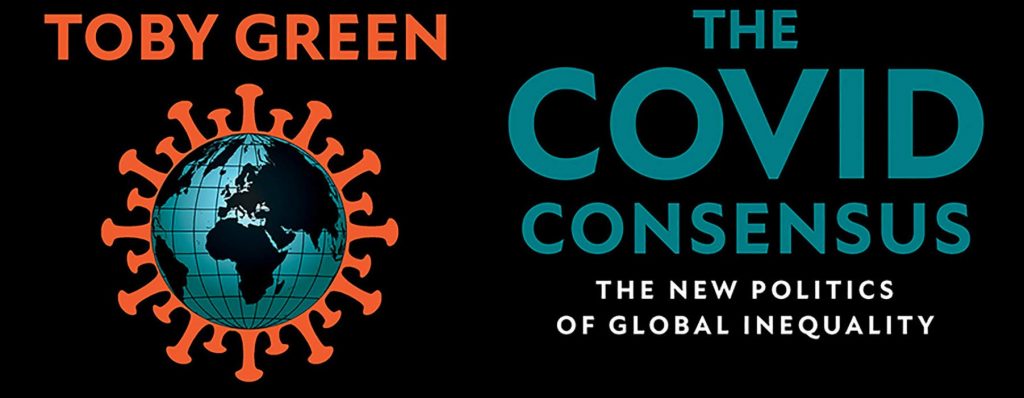by Sinéad Murphy

My mother’s uncle John had a lobotomy at the age of 21. He lived for another 50 or so years, in the psychiatric hospital in Tralee. I remember visiting him as a child. I remember my parents and grandfather talking to him – in short, flat-toned sentences with most of life’s contents edited out. He seemed to understand these sentences and was able to respond to them a little.
During the past year, my interactions with friends and family have reminded me of those conversations with John that I witnessed as a child. “How are the boys doing?” they ask. “Oh, not bad,” I reply, without mentioning that vital ingredients of my sons’ welfare are at present suspended by Covid measures. “How was the weekend?” I ask, and make non-committal noises when I am told that they are now “allowed” to travel within their county. Short sentences in flat tones, with most of life’s contents edited out.
Friends and family have this year seemed deadened to factual and moral realities to which many of them have been sharply attuned throughout their lives. It is a great effort to find an appropriate horizon of interaction within which to fulfil the duties of remaining in contact with them. Just as it was with John.
The Covid lobotomy has produced a dullness of understanding and of feeling that is profound and unexpected. But, unlike John’s procedure, I believe it might still be reversed.
Toby Green’s The Covid Consensus: The New Politics of Global Inequality is due for release on the 22nd of this month. It is the best hope yet of an antidote to the Covid lobotomy, performing the near impossible task of detailing, with references whose number and nature speak for themselves, the great horrors that government lockdowns have brought to bear on populations in the Global North and South, without once betraying the kind of outrage that causes those who believe in the Covid narrative to close their ears and shut their eyes, both to fact and to feeling.
In short, The Covid Consensus succeeds in communicating the horrors of lockdowns in the calm and measured tones that one needs to use with those whose faculties have been blunted by the Covid year and who are immediately put off by any show of contempt or impatience.
Toby Green is a senior lecturer in Lusophone African history and culture at King’s College London and the author of The Rise of the Trans-Atlantic Slave Trade in Western Africa, 1300–1589. Here’s the publisher’s blurb for The Covid Consensus:
Why does Western pandemic policy have support across the political spectrum, when its social impacts conflict with ideology on both right and left? During the pandemic, the Left has agreed that ‘following the science’ with hard lockdowns is the best way to preserve life; only irresponsible right-wing populists oppose them. But social science shows that while the rich have got richer, those suffering most under lockdown are the already disadvantaged: the poor, the young, and – most overlooked of all – the Global South. The UN is predicting tens of millions of deaths from hunger and warning that decades of development are being reversed. Equally, why have conservatives backed lockdowns and other major interventions, creating the big state that they usually abhor? These contradictions within the great consensus of Western pandemic response are part of a broader crisis in Western thought. Toby Green peels back the policy paradoxes to reveal irreconcilable beliefs in our societies. These deep divisions are now bursting into the open, with devastating consequences for the global poor.
It is easy to imagine that those who have not yet been touched by these horrors are beyond the pale. I have tried to interest friends and family in accounts of the damage caused by lockdowns. I have emailed links, even printed off articles and sent them through the post, to no avail.
A few scattered pages blowing in the breeze, or a set of paragraphs nested in adverts on a screen, do not inspire those who are already biased against their message.
There is nothing, after all, quite like a book. It has passed through the gatekeeping of an industry that is long established and respected, and it may be filed on shelves heavy with some of history’s most profound truths. If it is tossed onto the coffee table it will not be disarranged. It cannot intuitively end up in the recycling bin, and to fling it to the back of the fire has too ugly a history to be easily undertaken.
I intend to purchase multiple copies of The Covid Consensus for distribution to those of my family and friends who I judge to be still within reach.
We might think that the time is passing for this book; we are on the way out of lockdown, after all. But Boris Johnson’s murmurings last Monday, that the reduction in cases and deaths in the UK since the end of January is due, not to the injections but to the lockdown, surely signal that the likelihood of another lockdown is very high. And we ought not to forget that the conditions of our lives at this moment, even in the midst of the easing, continue to be more restrictive than any in history.
In fact, The Covid Consensus could not be more timely. Its coming out only shortly over a year after the onset of societal and personal conditions deeply erosive of energy and purpose is worthy of our grateful acknowledgment.
As is the brave effort of its publishers, Hurst, who have lent their support where most of their competitors would not.
Dr Sinead Murphy is a Research Associate in Philosophy at Newcastle University.













